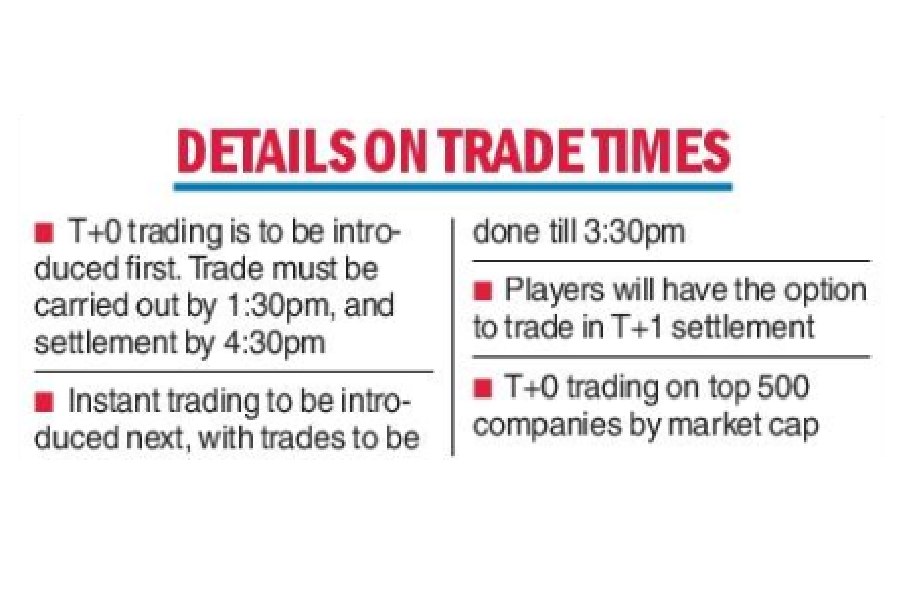The Securities and Exchange Board of India (Sebi) has put out a consultation paper on same-day (T+0) and instantaneous settlement of trades in the equity cash segment where it suggested a two-phase approach.
The regulator has proposed the trades will be optional — in addition to the existing T+1 settlement cycle in the secondary markets.
Sebi wants to implement the optional T+0 settlement first: trades must be completed by 1:30pm, with the settlement of funds and securities to be completed on the same day by 4.30 pm.
In the next phase, the optional immediate settlement will be implemented by the regulator: shares will be delivered to the buyer on a real-time basis and cash received by the seller at the same time, with trading carried out till 3.30 pm.

Sebi chairperson Madhabi Puri Buch recently indicated it is getting ready to introduce the T+0 settlement by March. Earlier this year, the bourses moved to T+1 settlement from T+2.
Sebi said the significant evolution of payment systems in the country coupled with sophisticated and robust technologies used by market infrastructure institutions (MIIs) has offered it the opportunity
to advance the clearing and settlement timelines, on an optional basis.
Moreover, the Indian banking system is efficient in providing real-time transfer of funds.
The depository system also has the visibility of client-level holdings, enabling instant debit and credit of securities.
The consultation paper said that, to begin with, the T+0 settlement shall be made available in the top 500 listed shares based on market capitalisation.
“Providing the option for instant settlement will help establish Indian equities as an asset class with the features of resilience, low cost and time for transaction, superior in all ways to emerging claimants of alternative asset classes,” Sebi said.
There are potential concerns as the new mechanism could lead to liquidity fragmentation and affect efficient price discovery. It may increase the cost of trading, as funds and securities need to be made available upfront before placing the orders.
The new regime could also result in divergence in the price of the same security in the T+0 or instant settlement cycle and T+1 settlement cycle.
Allaying these concerns, Sebi said there will be participants who can access both T+0 (or instant settlement) and T+1 markets, allowing them to bridge price and liquidity gaps between the two segments.
“Divergence, if any, that emerges between the T+0 / instant settlement cycle and T+1 settlement cycle may be bridged by the arbitrageurs thereby allowing for liquidity and effective price discovery in both segments,” it said.
The market regulator on Friday sought comments and inputs from stakeholders and members of the public on the introduction of the facility.











